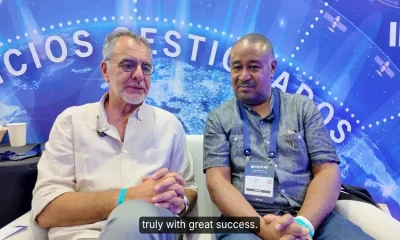Collective Mining Fights Back Against Short Seller Attack, Stands on Reputation
Collective Mining Ltd. (NYSE: CNL, TSX: CNL) has issued a robust public statement to reject a short-seller report published by Morpheus Research. The report, titled Morpheus Research Report: Collective Mining, alleges that the Canadian-based company is conducting illegal and restricted activities at its flagship Apollo gold deposit in the Department of Caldas, a claim the company’s management has categorically denied. The report also highlights the past of the company’s executive chairman, Ari Sussman, a move that the company has decried as a misrepresentation of facts.
The timing of the report, released by a firm that stands to profit from a decline in Collective Mining’s stock price, raises questions about its objectivity. Short sellers like Morpheus Research make money by borrowing shares of a company’s stock, selling them, and then repurchasing them later at a lower price to return to the lender, pocketing the difference. This practice, while legal, has long been a source of ethical controversy. Critics argue that short sellers may disseminate negative or even misleading information to intentionally drive down a company’s share price, profiting at the expense of other investors. While this can sometimes expose legitimate issues within a company, it can also create market volatility and lead to undue financial losses for long-term shareholders.
Dubious Claims and Collective’s Rebuttal
Morpheus Research’s report claims that a significant portion of Collective Mining’s exploration and drilling for the Apollo system has been conducted on untitled land and within environmentally protected riparian buffer zones. Citing an investigation using satellite imagery and data from the Agencia Nacional de Minería (ANM), the report alleges that some drill pads were built entirely outside the company’s officially granted mining titles.
Collective Mining’s response, however, offers a detailed and technical refutation. The company’s press release clarifies that small, incomplete cells or gaps between titles are a common administrative issue in Colombia’s mining sector. Ari Sussman, executive chairman, commented, “Having operated in Colombia for almost 20 years, the issue related to incomplete cells and gaps within or next to titles is nothing new and affects much of the mining industry. We faced a similar situation while operating at Continental Gold, which was successfully resolved.”
The Collective’s statement asserts that these incomplete cells, which resulted from the conversion of old claim shapes into square cells, cannot be staked by any third party. The company had already requested that the Colombian authorities integrate these cells into its title, and the authorities confirmed this would happen once their software is updated.
On the matter of environmental claims, Omar Ossma, president of Collective Mining, stated:
“As a Colombian national and lawyer with more than 20 years of experience in the mining and energy industry, I take great pride in ensuring that our Company operates with full respect for Colombian law, institutions, and communities.” He added that the allegations “are without legal merit and reflect a misunderstanding, or misrepresentation, of Colombia’s mining framework,” Ossma explained that drilling outside mining title boundaries is permissible under the Colombian Mining Code to meet technical requirements, such as understanding a deposit’s geometry and assessing geotechnical factors. Collective also confirmed that the Apollo system does not overlap with any areas excluded from mining and that it has obtained special permits from environmental authorities for drilling within water drainage buffer zones where necessary.
Management’s Track Record and Reputational Context
The Morpheus report also brought up a controversial incident from Mr. Sussman’s past at Colossus Minerals, a company that faced corruption allegations and later filed for creditor protection in Brazil. While this information is not directly relevant to Collective’s operations, the company’s defense hinges on the strong reputation and track record of its management team, a key point for investors.
The core of this reputation stems from their previous work at Continental Gold Inc., which was ultimately sold to China’s Zijin Mining Group (SEHK: 2899, SSE: 601899) for approximately $2 billion USD. As previously noted by Finance Colombia, that deal showcased the team’s ability to develop a significant mining asset from exploration to operation. The sale of Continental Gold to Zijin Mining for a premium demonstrated the management’s capacity to create substantial shareholder value in Colombia’s mining sector, a fact that both the company and the editorial opinion of this publication view as highly relevant.
Collective Mining is continuing its exploration program at its Guayabales and San Antonio projects, with 10 rigs currently in operation as part of a fully funded 70,000-meter drill program for 2025. The company’s management and insiders own a significant 44.5% of the outstanding shares, aligning their interests directly with those of shareholders.


























